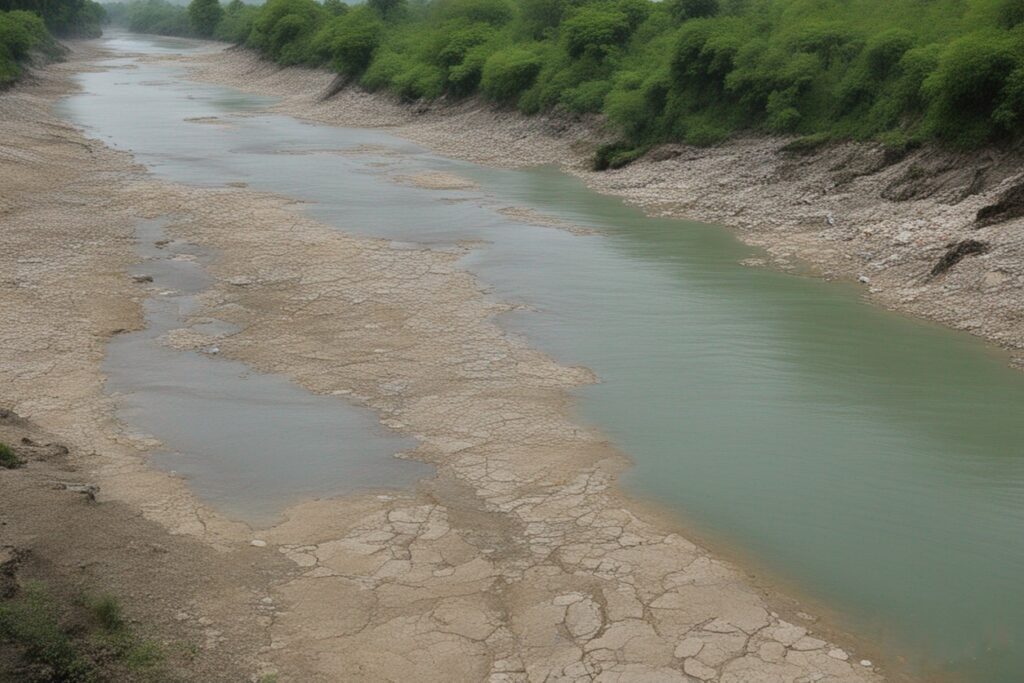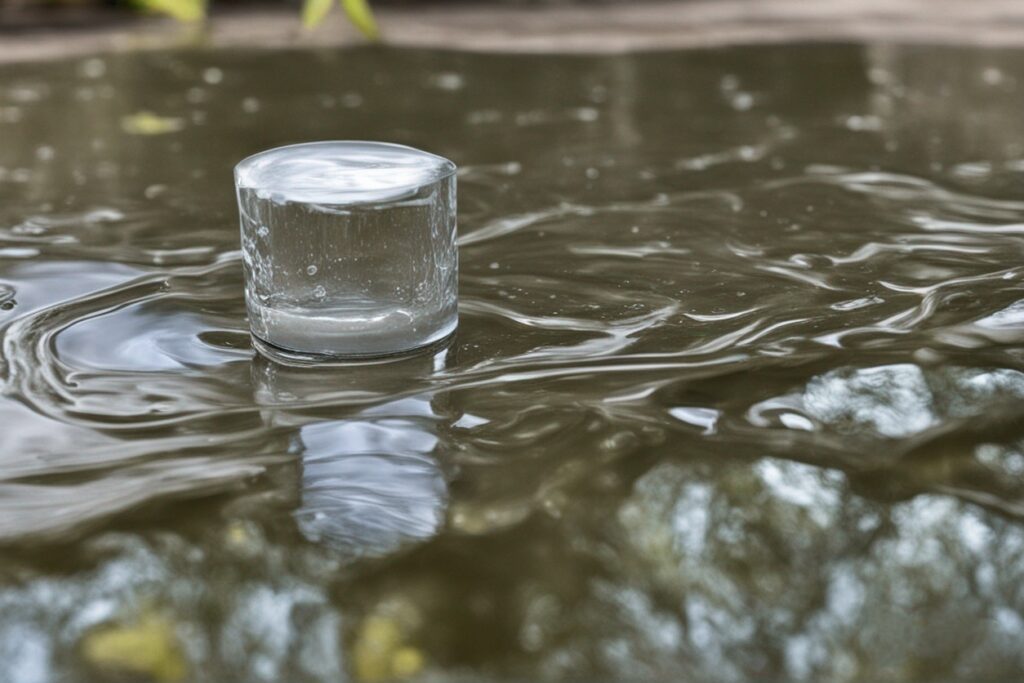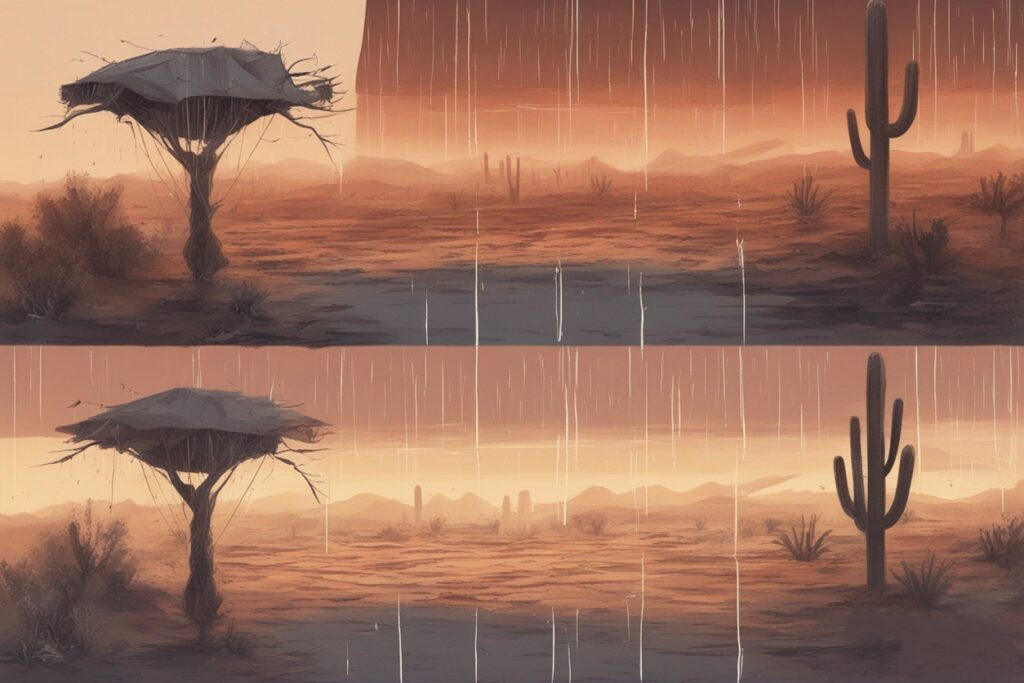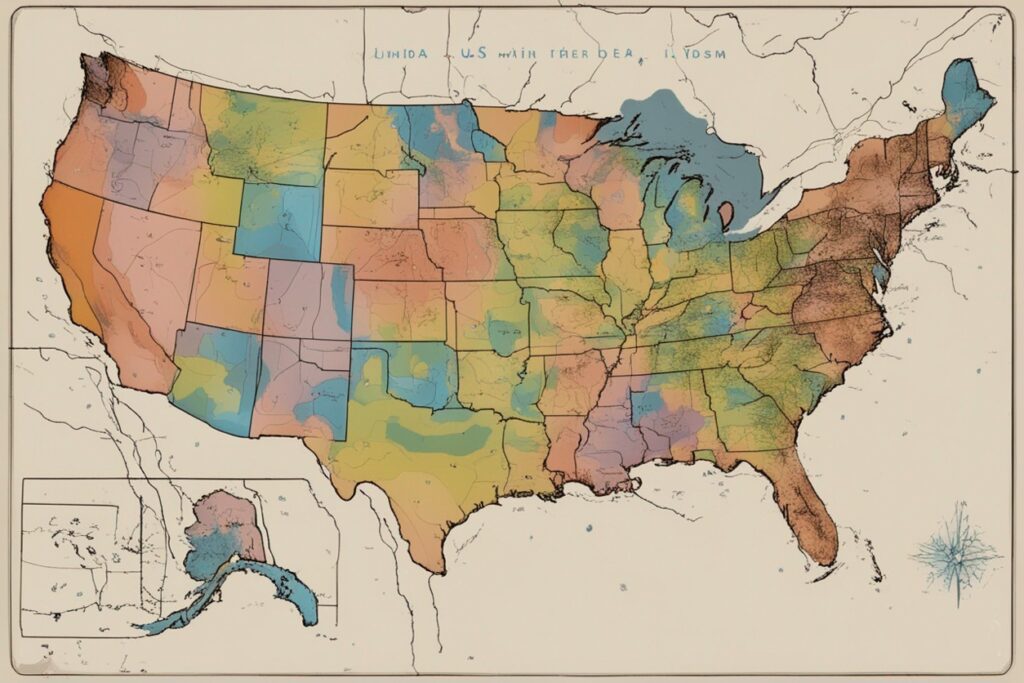Introduction
Rainwater is a valuable resource that falls freely from the sky, and many of us might wonder why collecting it could ever be illegal. However, the legality of rainwater collection varies around the world and within different regions. This article explores the reasons behind why, in some places, collecting rainwater is either restricted or considered illegal. We will delve into historical water rights, environmental concerns, water quality issues, and the delicate balance between these factors.
Key Highlights
- The reasons behind restricting rainwater collection involve Historical Water Rights, Environmental Worries, Water Quality Issues, and the Careful Balancing Act.
- Rainwater harvesting rules vary among U.S. states, each having its specific regulations.
Why It’s Illegal to Collect Rainwater: Exploring the Reasons
The legality of collecting rainwater varies by location, and it’s not universally prohibited to collect rainwater. However, in some areas, there have been restrictions or regulations around rainwater harvesting. The reasons behind these restrictions typically revolve around historical water rights systems, environmental concerns, water quality issues and the Balancing Act.
Historical Water Rights
One significant reason behind the legality of rainwater collection lies in historical water rights systems. Some regions follow the Prior Appropriation Doctrine, a water rights framework that dates back to the days of the Wild West in the United States. Under this system, the first person to use water from a natural source, like a river or stream, has the senior water rights. This means they have the primary claim to that water, and it’s their priority.
Collecting rainwater can interfere with this system. If you’re collecting rainwater on your property, it might flow into a river or stream, impacting those downstream who have senior water rights. In essence, you could be taking water from someone else, which is why rainwater collection is restricted in areas that adhere to this water rights doctrine.
Environmental Concerns

Environmental considerations are another crucial factor in the legality of rainwater collection. Altering the natural flow of water can have significant consequences for ecosystems and the environment. In areas with delicate ecosystems or endangered species, any disruption to the natural water flow can be harmful.
For instance, when rainwater is collected on a large scale, it can change the way water moves through the landscape. This can lead to erosion, sedimentation, and changes in the habitat of aquatic life. Even small changes in water flow patterns can disrupt the balance of ecosystems, potentially harming both flora and fauna.
Additionally, rainwater can carry contaminants. As it flows over roofs, it can pick up pollutants like dirt, bird droppings, and chemicals. Collecting this rainwater without proper treatment can introduce these contaminants into the local environment, further impacting ecosystems.
Water Quality Concerns

Water quality is a paramount concern when it comes to rainwater collection. Rainwater that falls on roofs can collect various impurities, from dust and pollen to more concerning elements like heavy metals. Without appropriate treatment, this rainwater may not be safe for drinking or cooking.
Contaminants like lead, which may be present on some older roofs or in the atmosphere, can find their way into collected rainwater. Ingesting such water without treatment poses health risks. To ensure the safety of potable water, some regions prohibit the use of rainwater for drinking without adequate filtration and purification.
The Balancing Act

The legality of rainwater collection reflects a delicate balancing act. On one hand, there’s a desire to conserve water, especially in areas prone to drought or water scarcity. Collecting rainwater can be a sustainable way to reduce the demand on traditional water sources. On the other hand, there’s a need to protect established water rights, preserve ecosystems, and ensure that the water collected is safe for use.
Many regions recognize the benefits of rainwater harvesting and aim to strike this balance. They may impose limits on the amount of rainwater that can be collected or require permits to ensure that it is done responsibly. The goal is to harness the benefits of rainwater collection while mitigating potential drawbacks.
It’s worth noting that many places have recognized the value of rainwater harvesting for water conservation and have updated their laws accordingly. They may have imposed limits or permitting requirements to balance the benefits of rainwater harvesting with potential drawbacks. Overall, the legality of rainwater harvesting is evolving as societies seek more sustainable and efficient water management practices.
Understanding Rainwater Harvesting
Rainwater harvesting involves the collection and storage of rainwater for future utilization. This harvested rainwater can be used for non-potable purposes, such as watering plants, flushing toilets, and more. In many cases, it serves as an eco-friendly way to conserve water resources and reduce the strain on municipal water supplies. Now, let’s explore the legal status of rainwater harvesting in different U.S. states one by one:
The Legal Status of Rainwater Harvesting by State

States with No Regulations
A significant number of states in the U.S. have no specific regulations regarding rainwater harvesting. This means that, in these states, individuals are generally free to collect rainwater for personal use without legal constraints. These states include:
Alabama
Alaska
Arizona
Connecticut
Delaware
Florida
Hawaii
Idaho
Indiana
Iowa
Kansas
Kentucky
Louisiana
Maine
Maryland
Massachusetts
Michigan
Minnesota
Mississippi
Missouri
Montana
Nebraska
New Hampshire
New Jersey
New Mexico
New York
North Dakota
Oklahoma
Pennsylvania
Rhode Island
South Carolina
South Dakota
Tennessee
West Virginia
Wisconsin
Wyoming
In these states, residents can typically harvest rainwater without encountering legal issues, making it an accessible and sustainable practice.
States with Limited Regulations
Some states have minimal regulations related to rainwater harvesting. These regulations often focus on specific aspects of the practice, such as water quality or safety. States falling into this category include:
Arkansas: In Arkansas, you can collect rainwater for outdoor use, like watering your yard. But there are rules – your rainwater system must be designed by an engineer, follow safety guidelines, and meet plumbing codes. You can’t use rainwater that flows into a natural waterway on your property.
Georgia: Georgia allows rainwater collection for non-drinking purposes, like gardening. However, you can’t use it for drinking or cooking without proper treatment. Georgia offers tax credits for eco-friendly rainwater collection systems.
Illinois: In Illinois, you can collect rainwater for non-drinking needs, such as gardening. Your system must follow plumbing codes, and there’s a limit of 5,000 gallons. Homeowners’ associations have rules about rainwater systems.
North Carolina: North Carolina supports rainwater collection for non-drinking purposes, like flushing toilets and watering plants, following a 2009 law.
Oregon: In Oregon, you can collect rainwater from your roof, but not from the ground or other sources. This rule protects water rights from streams and rivers.
Rhode Island: Rhode Island allows rainwater collection and provides tax credits for approved systems collecting rainwater from roofs. Following plumbing codes is important.
States with More Comprehensive Regulations
Certain states have implemented detailed regulations governing rainwater harvesting. While these states allow rainwater collection, they have specific rules and guidelines to ensure its safe and efficient practice. Notable examples include:
California: California passed the Rainwater Capture Act in 2012, which encourages rainwater collection. It’s a response to the state’s frequent water shortages. You can use this collected rainwater for non-drinking purposes, such as watering your garden or filling fountains. No special permits are required to collect rainwater from your roof. The primary goal is to save water, especially during droughts, and reduce the demand on the regular water supply.
Colorado: Colorado changed its rules in 2009 to allow rainwater collection. Previously, it was mostly illegal. Now, you can have up to two rain barrels, with a combined capacity of 110 gallons, for outdoor uses like garden watering. Drinking or cooking with rainwater is still a no-go. This change aims to conserve water during dry periods.
Nevada: Nevada legalized rainwater collection in 2017. You can collect rainwater from your roof, mainly for non-drinking purposes like plant watering. There’s a limit on the size of your storage tanks, capped at 20,000 gallons. This law helps manage stormwater and promotes outdoor water efficiency in the arid state of Nevada.
Texas: Texas actively supports rainwater collection. Some counties offer tax incentives for individuals and businesses using rainwater systems. Sales tax isn’t charged on rainwater harvesting equipment. The state even has awards for outstanding rainwater collection efforts. With a history of dry spells, Texas recognizes the importance of water conservation.
Utah: Utah permits rainwater collection, with a limit of 2,500 gallons, making it useful for outdoor tasks. However, you’ll need a permit to set up a rainwater harvesting system. Utah aims to strike a balance between water conservation and responsible rainwater use.
Vermont: In Vermont, you’re allowed to collect rainwater, but there are conditions. It’s not suitable for drinking without proper treatment, and collecting from roofs with contaminants is prohibited. Rainwater is primarily used for gardening and can help reduce water bills.
Virginia: Virginia allows rainwater use for non-drinking and outdoor purposes. Residents can collect rainwater for activities like garden irrigation and lawn care. Local regulations might add extra guidelines to follow.
Washington: Washington state permits rainwater collection from roofs without requiring a permit. It’s for on-property use, such as garden irrigation and outdoor cleaning. The state encourages rainwater harvesting to manage stormwater and prevent urban flooding in some regions.
The Future of Rainwater Harvesting in the U.S.
The legal landscape surrounding rainwater harvesting is evolving as sustainability practices gain prominence. While some states continue to have regulations in place, the trend suggests growing support for rainwater harvesting. Many states now encourage it as a means of water conservation, stormwater management, and improving water availability.
Organizations like the American Rainwater Catchment Systems Association (ARCSA) work with government entities to promote rainwater harvesting across the country. The focus is on sustainability and mitigating water-related challenges, making rainwater harvesting a viable solution.
Related Post: How Should Trash and Recyclables Be Stored?
FAQs
- Is It Truly Illegal to Collect Rainwater ? It can be Illegal to Collect Rainwater in some states, but regulations vary. Always check local rules and permits.
- Can I use harvested rainwater for drinking in states that permit rainwater harvesting? In most cases, states that permit rainwater harvesting for non-potable purposes do not allow it for drinking without proper treatment.
- Are there any federal regulations on rainwater harvesting in the United States? As of now, there are no federal regulations governing rainwater harvesting, leaving it up to individual states to establish their own guidelines.
- Are there any tax incentives for rainwater harvesting in certain states? Yes, some states offer tax incentives or credits to promote rainwater harvesting and water conservation efforts.
- Can rainwater harvesting help reduce water bills? Yes, rainwater harvesting can help reduce water bills by providing an alternative source of water for non-potable uses, such as outdoor irrigation and toilet flushing.
- Can I collect rainwater on a commercial scale for industrial purposes? The regulations and permits required for large-scale rainwater harvesting for industrial purposes may vary by state and locality. It is essential to consult with relevant authorities and adhere to local regulations when considering such projects.
Conclusion
Rainwater collection isn’t illegal everywhere because it can cause problems. Some places don’t want you to collect rainwater because they have special rules about who gets to use water first. Others worry that collecting rainwater might harm the environment or make the water dirty. It’s like having rules to make sure everyone gets a fair share of water, to keep nature safe, and to make sure the water we collect is clean and healthy. These rules aim to ensure fairness in water access, protect the environment, and maintain water quality.
However, it’s essential to understand why rainwater harvesting is crucial. Rainwater is a valuable resource that can alleviate water shortages, especially in drought-prone areas. By collecting rainwater for non-drinking purposes like irrigation and flushing toilets, we reduce the demand on traditional water sources. This conservation method helps lower water bills, mitigate drought effects, and promote responsible water use.
So, while there are regulations to govern rainwater harvesting, it’s vital to recognize its significance in sustainable water management and water resource conservation.




2 thoughts on “Why is it illegal to collect Rainwater? Reasons and US Laws”
Comments are closed.